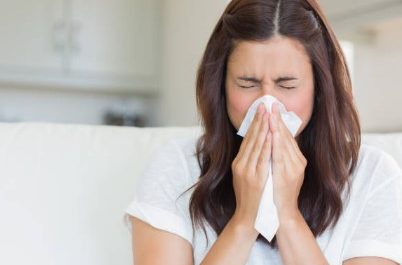While it may not be possible to completely stop a runny nose within 5 minutes, there are some techniques you can try to alleviate the symptoms and reduce the amount of nasal discharge.
Blow your nose
Gently blow your nose to remove any excess mucus. Be sure to do it gently to avoid causing irritation.
Use a saline nasal spray
Saline nasal sprays help moisturize the nasal passages and can help clear out mucus. Tilt your head back slightly and spray the saline solution into each nostril.
Apply a warm compress
Placing a warm compress or warm towel over your nose and sinuses can help reduce congestion and relieve a runny nose.
Stay hydrated
Drink plenty of fluids, such as water or warm herbal tea, to help thin out the mucus and prevent dehydration.
Use over-the-counter nasal decongestants
Over-the-counter nasal decongestant sprays or drops may provide temporary relief by shrinking the blood vessels in the nasal passages. However, these should be used for short periods and as directed, as prolonged use can lead to rebound congestion.
Avoid irritants
Stay away from irritants such as cigarette smoke, strong odors, and allergens that can trigger or worsen a runny nose.
Consider antihistamines
If your runny nose is due to allergies, taking an over-the-counter antihistamine may help reduce symptoms. However, it’s important to follow the recommended dosage and consult with a healthcare professional if you have any concerns.
Remember, these measures may provide temporary relief, but if you’re experiencing persistent or severe symptoms, it’s advisable to consult with a healthcare professional for a proper diagnosis and appropriate treatment.
What causes Runny Nose?
A runny nose, also known as rhinorrhea, can have various causes. Some common factors that can lead to a runny nose include:
Common cold
The most common cause of a runny nose is a viral infection like the common cold. Cold viruses can irritate the lining of the nasal passages, leading to increased mucus production and a runny nose.
Allergies
Allergic rhinitis, also known as hay fever, can cause a runny nose. It occurs when the immune system reacts to allergens such as pollen, dust mites, pet dander, or certain foods, triggering symptoms including a runny or stuffy nose.
Sinusitis
Sinusitis is an inflammation of the sinus cavities, usually caused by a bacterial or viral infection. It can lead to a runny nose along with other symptoms such as facial pain, congestion, and postnasal drip.
Nasal irritants
Exposure to irritants like smoke, strong odors, chemicals, or pollutants can cause the nasal passages to produce excess mucus, resulting in a runny nose.
Changes in temperature or humidity
Sudden changes in temperature or humidity can cause the nasal passages to become irritated and lead to a runny nose.
Spicy foods
Consuming spicy foods can trigger a runny nose in some individuals due to the release of chemicals that cause nasal congestion and increased mucus production.
Physical exertion
Intense physical activity or exercise can cause a runny nose in some people. This is known as exercise-induced rhinitis and is believed to be caused by increased blood flow to the nasal tissues.
It’s important to note that the underlying cause of a runny nose can vary, and a proper diagnosis by a healthcare professional may be needed to determine the exact cause and provide appropriate treatment.


